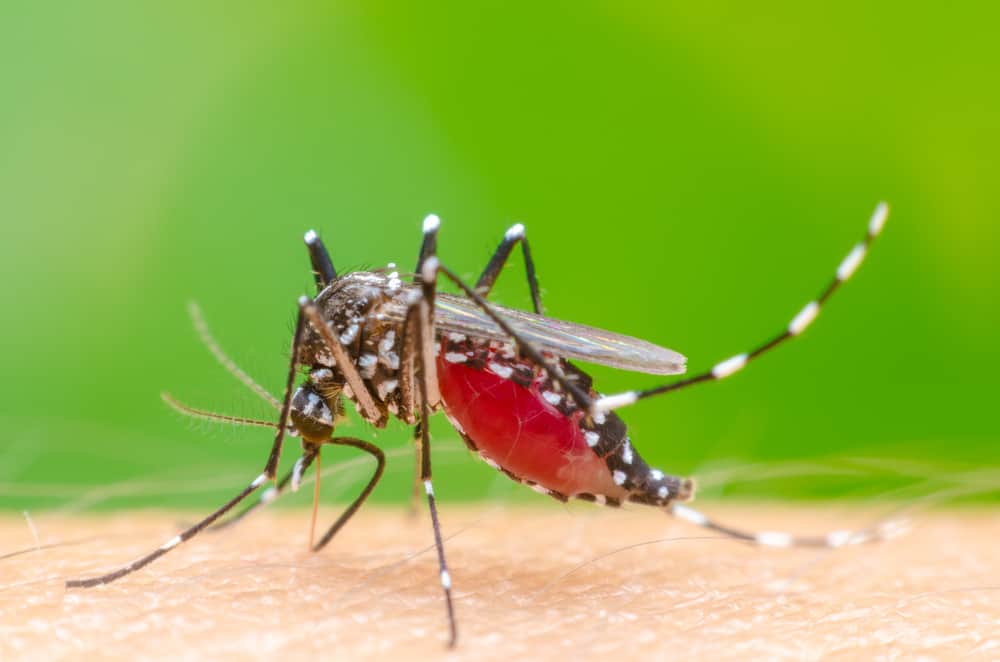Contents:
- Medical Video: Measles Outbreak | Measles Explained | Measles Vaccine | MMR Vaccine | Public Health England | 2018
- What is the difference between measles and German measles?
- Measles
- German measles
- How do you distinguish the symptoms of measles and German measles?
- Symptoms of measles
- Symptoms of German measles
- The treatment of measles and German measles is also different
- Measles
- German measles
- Then, how to prevent both?
- Complications of measles and German measles
- Measles
- German measles
Medical Video: Measles Outbreak | Measles Explained | Measles Vaccine | MMR Vaccine | Public Health England | 2018
Apart from smallpox, measles is a contagious disease that is quite frightening because both cause a red rash on the skin. Besides that, it turns out there are also German measles with conditions that are not much different. Although often confusing, what is the difference between measles and German measles?
What is the difference between measles and German measles?
Measles
Measles is an infectious disease of the respiratory system, which is transmitted by viruses from the paramyxovirus family. This disease is usually transmitted directly through the air or touch directly with fluids from the body of an infected person.
The measles virus can live in free air for up to two hours. When infected particles mix with air and settle on the surface, anyone who is close to the virus can be immediately infected.
One reason that makes measles dangerous is because a person can transmit the measles virus, even though it has not shown symptoms of measles. In short, you can easily spread the measles virus without knowing that you have it.
Generally, measles is mostly experienced by children. However, it does not rule out the possibility that it will also attack adults, especially if you have never had a small child.
German measles
German measles, also known as rubella, is a contagious infection caused by the rubella virus. Just like measles, German measles is also transmitted through the air that has been contaminated with coughing, sneezing, and fluid from infected patients.
Someone who has been infected with this virus has the opportunity to transmit the rubella virus one week before and after symptoms appear. Even so, both measles and German measles together can be prevented or minimized the risk of immunization (vaccine).
How do you distinguish the symptoms of measles and German measles?
Symptoms of measles
Generally, after the body has been infected with the measles virus, about 10 to 12 days later the body will be attacked by a high fever that lasts 4-7 days. At that time, you might also feel complaints in the form of:
- Runny nose
- Red eye
- Sore throat
- Cough
- White spots in the mouth
Skin rash accompanied by itching will also spread throughout the body and is the most common sign of measles. Usually a new rash will appear five days after the virus develops in the body.
Symptoms of German measles
When compared to ordinary measles, the symptoms of German measles tend to be lighter. That is why symptoms that appear are usually difficult to recognize. However, when symptoms appear they will usually develop within 2-3 weeks after the virus attacks your body. Its characteristics include:
- A red rash appears from the face, then spreads throughout the body
- Mild fever
- Red eye
- Headache
- Muscle ache
- Nasal congestion
- Swollen lymph glands
Although the signs that appear are not too serious, it is important to immediately see a doctor, especially if you are pregnant. German measles infection can occur at any age, but people infected with German measles at an older age will usually experience more severe symptoms.
The treatment of measles and German measles is also different
Measles
Before starting treatment, the doctor will diagnose measles first by checking the rash on the skin and other symptoms of measles. If it is considered difficult, the doctor may do a blood test to confirm it.
Reported from the Healthline page, there are actually no special recipes for treating measles, usually patients are recommended to drink plenty of fluids and adequate rest to speed up the recovery process while preventing complications. However, some of these drugs can be recommended for consumption when someone is diagnosed with measles:
- Acetaminophen, to relieve fever and muscle aches
- Humidifier, to relieve coughs and sore throats
- Vitamin A supplements
German measles
Not much different from ordinary measles, the doctor will also check the symptoms and do a blood test if necessary, to ensure the presence of the German measles virus in your body.
There is no specific cure for German measles, because the symptoms that appear are quite mild so they do not require special treatment. Patients will only be advised to increase rest at home and accompany it by drinking acetaminophen or ibuprofen to relieve symptoms.
While for pregnant women can be treated with antibodies called hyperimmune globulin to fight the development of the virus.
Then, how to prevent both?
The method used to prevent measles and German measles can be said to be the same, namely by getting the MMR vaccine. This vaccine is believed to protect the body from measles, mumps and German measles.
Giving the MMR vaccine is usually done when the baby is 12-15 months old, then continued when the child is 4-6 years old or before entering school age. It is important to limit interactions with sufferers, if there are family members or people closest to measles.
Complications of measles and German measles
Measles
Important for measles immunization since childhood. Because the measles can cause life-threatening complications, such as pneumonia and inflammation of the brain. Other complications that might occur are:
- Bronchitis
- Ear infections
- Miscarriage or premature labor, if suffered by pregnant women
- Decreased blood platelets
- Blindness
- Severe diarrhea
German measles
While in German measles, complaints such as arthritis in the fingers; wrist; until the knee can usually occur and last for about one month. In rare cases, German measles can also cause ear infections and inflammation of the brain.
Unfortunately, if German measles attacks the health of a pregnant woman, it can result in congenital rubella syndrome. This syndrome can occur in approximately 80 percent of babies born to mothers who suffer from measles. Problems arising from German measles syndrome, namely:
- Cataract
- Deaf
- Congenital heart abnormalities
- Organ defects
- Intellectual disability












